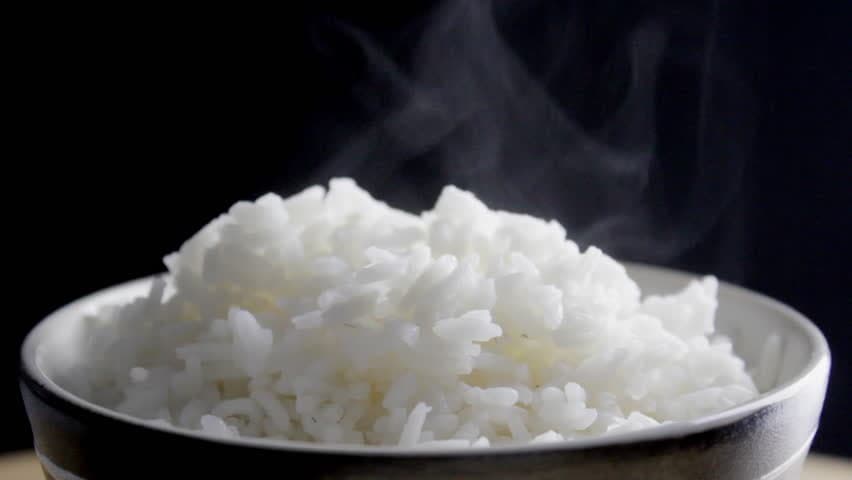Contents:
- Medical Video: 3 SUPPLEMENTS YOU SHOULD BE TAKING DAILY TO STAY HEALTHY
- 1. Vitamin C
- 2. Vitamin B
- 3. Zinc
- 4. Selenium
- 5. Magnesium
- 6. Vitamin A
- 7. Vitamin E
- 8. Manganese
- 9, Ginseng
- 10. Echinacea
Medical Video: 3 SUPPLEMENTS YOU SHOULD BE TAKING DAILY TO STAY HEALTHY
When the body is stressed, lack of sleep, or intake of unhealthy foods, your body's resistance will weaken and the body will more easily contract the disease. To overcome this, you need to strengthen the immune system by consuming the right vitamins and minerals.
Then, what are the important vitamins and minerals for endurance? See below.
1. Vitamin C
Vitamin C is a vitamin that cannot be stored in the body. Therefore, intake of vitamin C must be fulfilled from food or drinks consumed. In addition, vitamins are also included in supplements so that people who are at risk of vitamin C deficiency can quickly be overcome by taking vitamin C supplements.
Vitamin C has a large role in the body to repair damaged body tissue, and is also very important in maintaining the body's immune system. Antioxidants in vitamin C can block some damage caused by free radicals. Over the years vitamin C has also been recognized as a powerful substance to relieve infectious diseases such as colds. People who take vitamin C supplements regularly, experience cold symptoms and a shorter and shorter duration of a cold compared to people who don't do this
2. Vitamin B
Vitamin B is a fat soluble vitamin that has many benefits in the body. Vitamin B has many types in the body. Overall, B vitamins function, among others, for:
- Helps the body metabolize carbohydrates to produce energy
- Helps red blood cell production to prevent the condition of weakness and keep the body fresh
- Helps the body to store energy reserves from food
- Maintain the condition of the nervous system and red blood cells
3. Zinc
Zinc is a mineral that is very much needed in the body. Although zinc is a type of trace mineral, it is a mineral that is needed in very small amounts (below 100 mg per day) but its function is very important.
One of the main functions of zinc is to strengthen the body's immune system with vitamins. Therefore, vitamins and minerals must be fulfilled so that the results are optimal.
Zinc activates T cells in the body. These T cells will control all the immune system responses in the body and are in charge of attacking germs, bacteria or viruses that attack.
4. Selenium
Selenium is a mineral source that functions as an antioxidant. Antioxidants are compounds that can prevent cell damage in the body, due to excessive free radical attacks. Excess free radicals in the body can damage healthy cells and cause chronic diseases such as heart disease, Alzheimer's, cancer, stroke, and premature aging. Antioxidants from selenium help reduce excess free radicals so that the body stays healthy every day.
Selenium also helps improve the function of the immune system. Research shows that the more selenium in the blood is related to the increasing immune response.
In the 2015 Advances in Nutrition Journal, it was also found that selenium in the form of supplements can strengthen the immune system of people infected with viruses or bacteria such as influenza, tuberculosis, and hepatitis C.
5. Magnesium
Magnesium is included in the group of major minerals needed in the body. Unlike selenium which is needed in small amounts, magnesium is needed in large quantities, namely 310-350 mg for adults.
Magnesium is needed by the body to help metabolize carbohydrates and fats to become energy. Magnesium does not produce energy but in the presence of magnesium, the process of making energy from fat and carbohydrates will run smoothly.
Magnesium will help the body to use carbohydrates or fats into energy so that the body stays energized.
Not only that, magnesium has an important role in maintaining the nervous system. Magnesium helps regulate neurotransmitters, which are brain chemicals that help carry messages from brain cells to the nervous system.
In addition, reported on the page Healthline magnesium also has benefits as an anti-inflammatory mineral.
6. Vitamin A
Vitamin A is a fat soluble vitamin that is needed by the body. Vitamin A has a very important function in maintaining the body's resistance by maintaining the response of several immune cells in the body. From natural killer cells, macrophages, and neutrophils. All three are important cells that can attack bacteria, germs, or other parasites in the body.
7. Vitamin E
Vitamin E is a fat soluble vitamin that is important to improve the function of the immune system or immunity so that the body can fight bacteria and viruses properly. Vitamin E also functions as an antioxidant, helping to protect body cells from damage caused by free radicals from around the environment.
In addition, vitamin E also helps to dilate the body's blood vessels so that it prevents blood vessel blockages in the body. You can get vitamin E from food or supplements. The average requirement for vitamin E per day is 15 mg. If you experience vitamin E deficiency, you can experience nerve or muscle damage, loss of sensation in the hands and feet, and decreased immune system.
8. Manganese
Manganese is a type of mineral needed in small amounts in the body. Together with other types of minerals, manganese acts as a form of enzyme to accelerate chemical reactions in processing carbohydrates, amino acids and cholesterol. Manganese is also important for maintaining a balance of blood sugar and antioxidants.
In the 2014 BMC Endocrine Disorder Journal, it was found that the number of people with diabetes and kidney damage increased in people who lack manganese in the blood. Therefore, the availability of manganese in the body must be maintained to regulate blood sugar balance and maintain kidney function properly. In addition, manganese also plays a role in accelerating the wound healing process.
9, Ginseng
Besides vitamins and minerals that the body needs, natural ingredients from herbs are also needed by the body to increase endurance. This natural ingredient that will complement the function of vitamins and minerals to be more optimal. One of them is ginseng.
Reported on the WebMD page, Ginseng has long been used as a natural ingredient to improve overall body health. This is also used to strengthen the body's immune system to fight disease and stress.
10. Echinacea
In addition to natural herbal ingredients from ginseng, echinacea is equally important. Reported on the Medical News Today page, echinacea helps boost the immune system and reduce many symptoms of colds, flu and other infectious diseases. Echinacea is a natural herbal ingredient that has strong antimicrobial properties. This makes it able to fight bacteria that attack the body.












